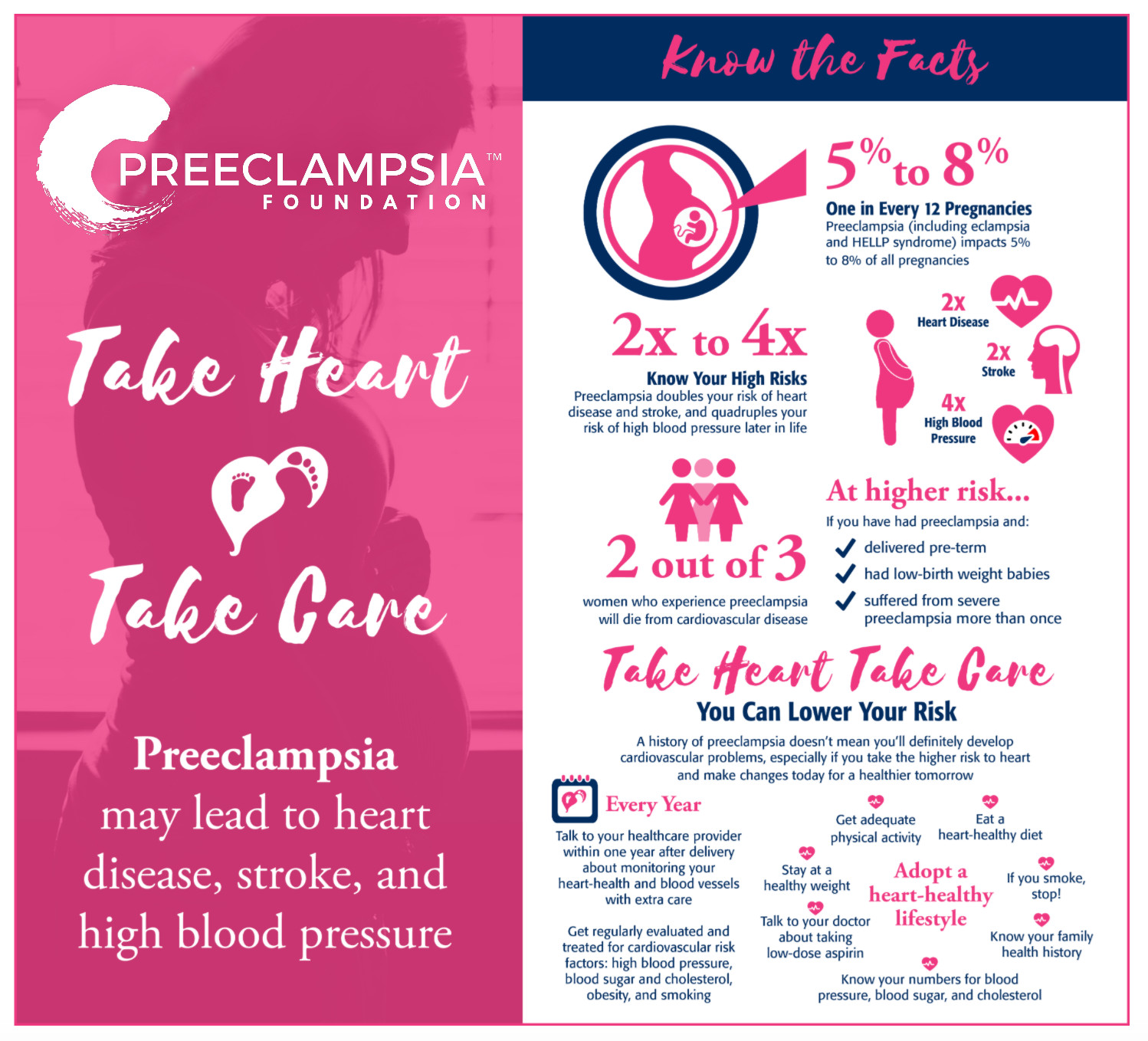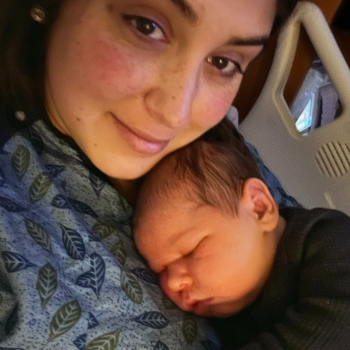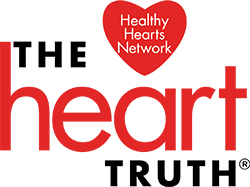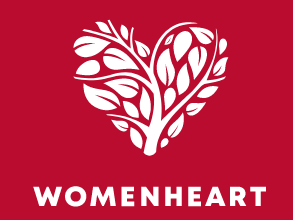
HEART DISEASE & STROKE
En españolLast Updated on September 19, 2024
heart disease & stroke
Take Heart and Take Care: Preeclampsia May Be Associated with Heart Disease and Stroke Later in Life

Heart disease is the leading cause of death for women and appears to be increasing in women aged 35 to 54 years.
Women who have had preeclampsia have three to four times the risk of high blood pressure and double the risk for heart disease and stroke. They also have an increased risk of developing diabetes. For women who had preeclampsia and delivered preterm, had low-birthweight babies, or suffered from severe preeclampsia more than once, the risk of heart disease can be even higher. While still unknown whether the risk is caused by preeclampsia or if the woman was already predisposed, these risks first emerge in the years following a complicated pregnancy. Although this may seem daunting, ample research shows that there are many ways for women to protect their heart health and that of their families!
This research does not mean you will definitely develop heart problems if you had preeclampsia, but for some women pregnancy can serve as an early warning sign for future heart disease. This kind of “heads up” gives you an opportunity to make changes now for a healthier tomorrow – and reap the benefits today, too!
Many of the risk factors for preeclampsia and other conditions affecting your blood pressure and heart are similar. They include a family history of high blood pressure, heart disease and diabetes.
While you can’t change your family history, you can adopt a heart-healthy lifestyle to significantly reduce these risk factors:
- Overweight or obese
- High blood pressure (greater than 140/90 mm hg)
- High blood sugar
- High blood triglycerides (a type of fat)
- Low HDL (“good” cholesterol)
- Smoking
What recommendations about cardiovascular disease does the Preeclampsia Foundation endorse for women who experience preeclampsia?
The Preeclampsia Foundation's position paper on "Preeclampsia and Future Cardiovascular Disease in Women: What Do We Know and What Can We Do"? summarizes current research findings and provides best practice recommendations related to preeclampsia and future cardiovascular disease that are endorsed by the Foundation.
The Preeclampsia Foundation wishes to thank Dr. Mayri Sagady Leslie and Dr. Linda Briggs, George Washington University, School of Nursing, for their extensive research and authorship of this position paper. We also appreciate Dr. Elizabeth Sutton, University of Pittsburgh School of Medicine, Magee-Womens Research Institute, for authoring each “Community Summary” in the position paper. Special thanks to Dr. Tanya Melnik, University of Minnesota, as the primary author of the 2006 position paper this is based upon.
What can I do to reduce my risk for heart disease?
If you had preeclampsia, you can make lifestyle modifications now to reduce your risk.1 Also you should talk to your health care provider to take extra care to monitor the health of your heart and blood vessels. If you have other risk factors in addition to your history of preeclampsia, these steps are even more important. Heart disease takes years to develop and you can take steps now to reduce your risk. Making better choices today can impact your health today and in the future.
You can also continue to monitor your blood pressure trends at home. For more information on how to accurately use a home blood pressure cuff, see our video at http://www.preeclampsia.org/blood-pressure. Remember to "Check - Know - Share" your blood pressure trends with your care providers.
Talk to your healthcare provider about your pregnancy history
Care guidelines from the American Heart Association and American College of Obstetricians and Gynecologists encourage providers to ask about a woman’s pregnancy history and to consider preeclampsia a risk factor for future heart disease. The American College of Obstetricians and Gynecologists guidelines recommend a yearly assessment to check your blood pressure, cholesterol, weight, and blood sugar levels for women with a history of early onset or recurrent preeclampsia. Other pregnancy complications also are associated with increased risk of heart disease. Be sure to let your healthcare providers know if:
- You have been pregant before, how many times, and the outcome of each
- You experienced preeclampsia (or high blood pressure) in any of your pregnancies and how many were impacted
- You experienced gestational diabetes in any of your pregnancies, which increases the risk of diabetes later in life
- Any of your babies were born more than three weeks before your due date
- Any of your babies weighed less than 5-1/2 pounds at birth
Get adequate physical activity
Walk 30 minutes five times a week and do muscle-strengthening exercises two or more times a week. Do something fun like dance, yoga, or an activity with your whole family to build a habit of movement as a regular part of your life.
Eat a heart-healthy diet
Eating a diet high in fiber, vegetables, and fruits, and low in fat (the Dietary Approaches to Stop Hypertension – or DASH – eating plan) has been proven to help lower blood pressure. Even if you don’t have high blood pressure, it will help you develop healthy eating habits and may prevent or delay your developing high blood pressure in the future. Proper diet and exercise can reduce your risk factors for heart disease.
Check out this postpartum nutrition after preeclampsia handout from Brigham and Women's Hospital.
Stay at a healthy weight
Body mass index (BMI) is your body weight relative to your height. A healthy BMI is between 18.5 and 25 (see BMI categories below). A BMI greater than 25 may increase your risk for heart disease. If your BMI is high, talk to your healthcare provider about different ways to lose weight.
If you smoke, stop!
You should also try to avoid second-hand smoke. Tobacco raises blood pressure and damages blood vessels immediately.
Know your family health history
If you have a family history of high blood pressure or heart disease, you are more likely to get it later in life. Be sure to tell your care team about your family’s health history.
Talk with your doctor about aspirin
Taking low-dose aspirin may reduce your risk of heart attack and stroke depending on your age and other risk factors. (See reference for aspirin use at uspreventiveservicestaskforce.org.)
Know your numbers
Blood pressure: A healthy blood pressure is around 120/80 mm Hg or lower. If your blood pressure is higher, talk to your healthcare provider about ways to lower it including lifestyle and diet modifications. Medications may be prescribed for higher blood pressures.
Here's information on how to take your blood pressure the right way.Cholesterol: Talk to your healthcare provider about tracking your cholesterol (blood fats or “lipids”). If your levels are high, ask how you can lower them. Diets that include omega 3 fatty acids may help. In some cases, medications such as statins may be important to your care.
These are optimal levels:
- Total cholesterol: less than 200 mg/dl
- LDL (bad cholesterol): less than 100 mg/dl
- HDL (good cholesterol): more than 50 mg/dl
- Triglycerides: less than 150 mg/dl
Blood glucose (blood sugar): Talk to your healthcare provider about screening for diabetes.
The link between preeclampsia and heart disease is not yet well known among the general population. Now that you know about it, you can take charge of your health – for now and the future!
Resources for more information:
American College of Obstetricians and Gynecologists Guidelines
American Heart Association Guidelines
DASH Eating Plan
Million Hearts
Women Heart
Choose My Plate
More about Preeclampsia
Body Mass Index (BMI) Calculator
BMI categories:
Underweight = <18.5
Normal weight = 18.5–24.9
Overweight = 25–29.9
Obesity = BMI of 30 or greater
1. Jennifer J. Stuart, Lauren J. Tanz, Eric B. Rimm, Donna Spiegelman, Stacey A. Missmer, Kenneth J. Mukamal, Kathryn M. Rexrode, Janet W. Rich-Edwards. Cardiovascular Risk Factors Mediate the Long-Term Maternal Risk Associated With Hypertensive Disorders of Pregnancy. Journal of the American College of Cardiology, 2022; 79 (19): 1901 DOI: 10.1016/j.jacc.2022.03.
The Preeclampsia Foundation is a proud partner of the National Heart, Lung and Blood Institute (NHLBI)The Heart Truth® program coordinates a robust network of public and private organizations committed to promoting heart health through outreach, research, and social and digital media.
The Preeclampsia Foundation received the 2020 WomenHeart Wenger Award for "Excellence in Patient Advocacy." Named after Nanette Kass Wenger, M.D., a pioneer in women’s cardiology, this annual award gives recognition to individuals and organizations for their extraordinary contributions to women’s heart health. We are proud to continue to advocate for women's heart health during pregnancy, the postpartum period, and beyond.

My perfect daughter, Katie, gave birth to her first child just eight days before she passed away due to postpartum complications. Her deliver...
ReadMoreRelated Articles

Ánimo y cuídate: la preeclampsia puede estar asociada con enfermedades cardíacas y accidentes cerebrovasculares más adelante en la vida Descargue nuestra hoja informativa

Eclampsia is a very serious complication of preeclampsia characterized by one or more seizures during pregnancy or in the postpartum period.

La preeclampsia, en todas sus formas, puede requerir muchos análisis, tanto durante como después del embarazo. ¿Alguna vez se preguntó por qué el proveedor de atención médica le solicita tantos anális...

El embarazo es un momento ideal para familiarizarse con su presión arterial. Aquí encontrará todo lo que necesita saber sobre cómo tomarse la presión arterial en casa.

Melbourne, FL – September 17 , 2024 – The Preeclampsia Foundation, in partnership with the International Society for the Study of Hypertension in Pregnancy (ISSHP) and Society for Ma...

Resultados de varios estudios apoyan la hipótesis de que el estrés causado por un embarazo y parto traumáticos puede en muchas ocasiones anular la habilidad de salir adelante emoc...

Is there a connection between maternal diet and preeclampsia? The PRECISE Network research team and I recently completed an evidence review to compile information on maternal nutritional factors that...

What you’ll learn in this article: Many risk factors contribute to an individual’s chance of getting preeclampsia. These risk factors may be genetic, physical, environmental, and even s...

Question: Progesterone supplementation - first trimester and beyond - can it help the vascular constriction by keeping the smooth muscle relaxed (17HP shots), and is it associated with early supplemen...





